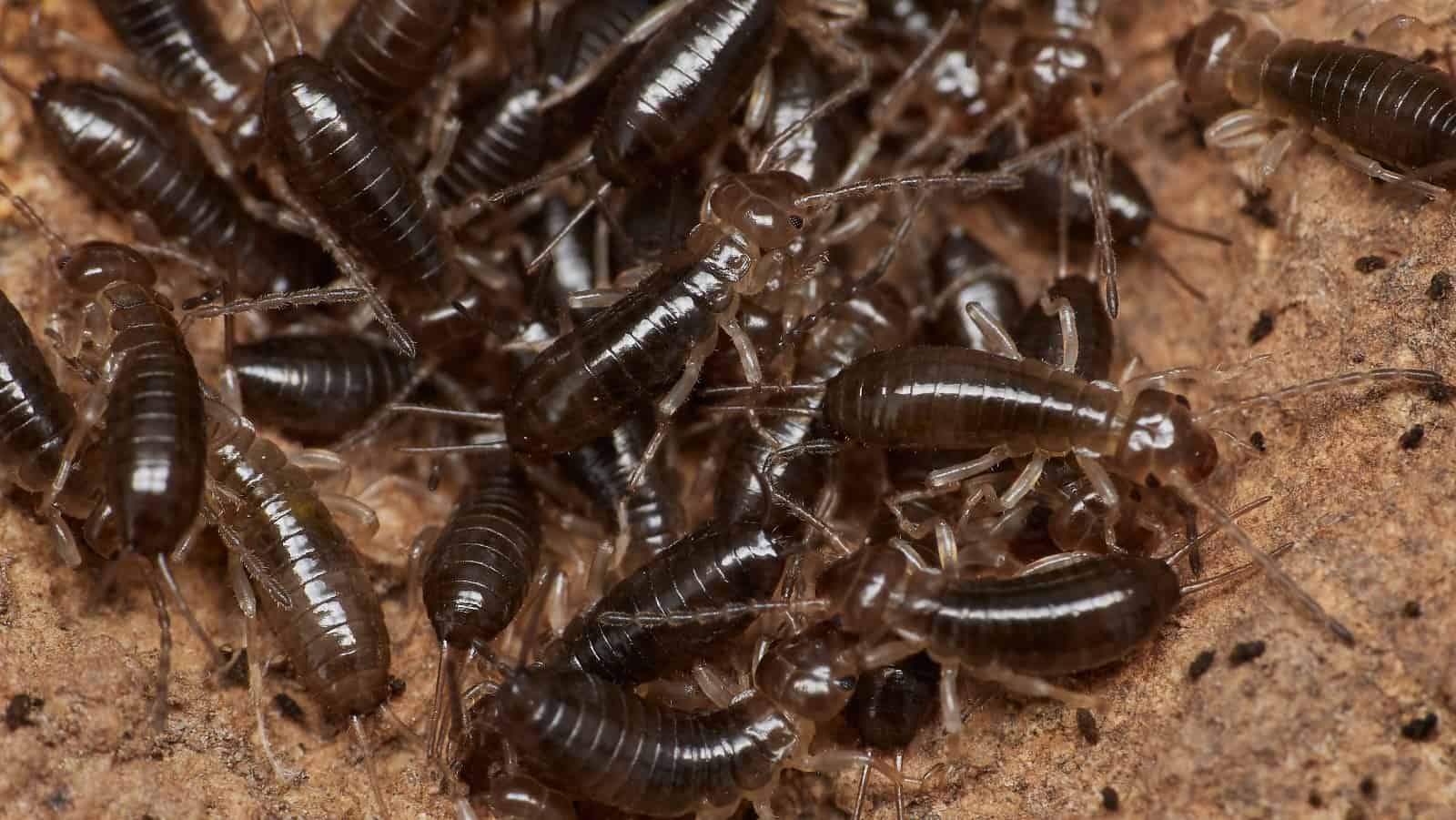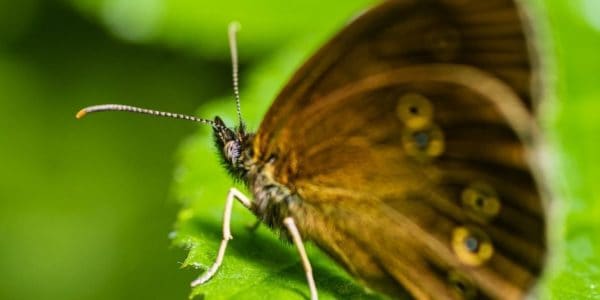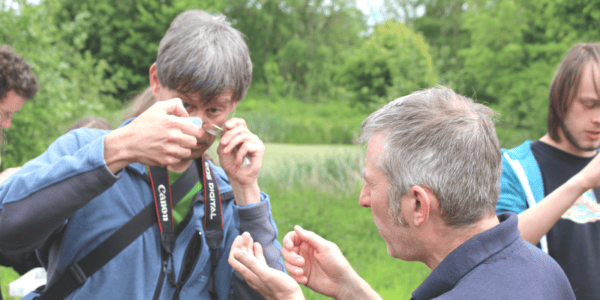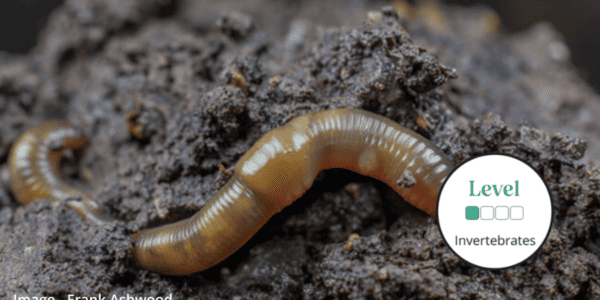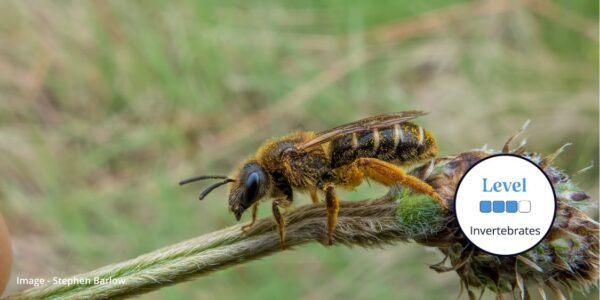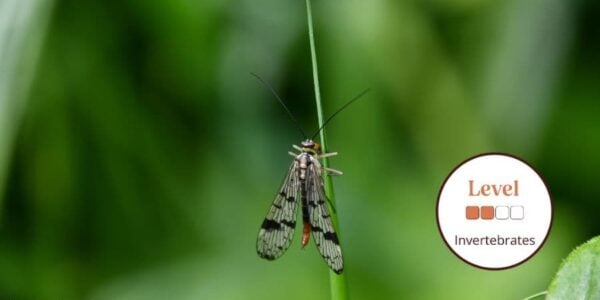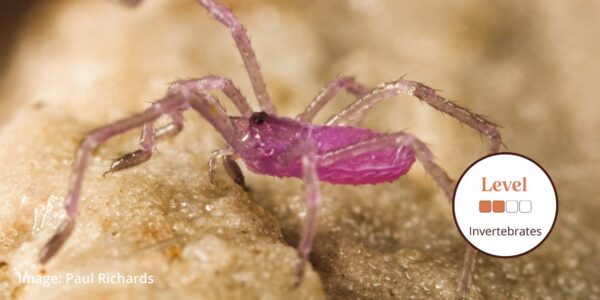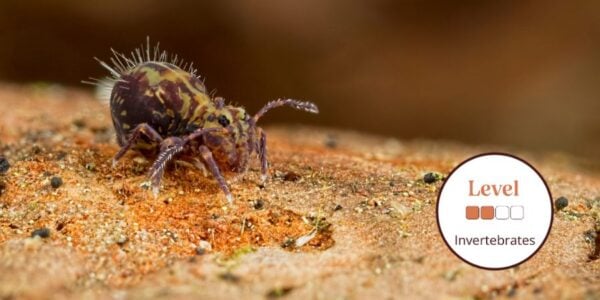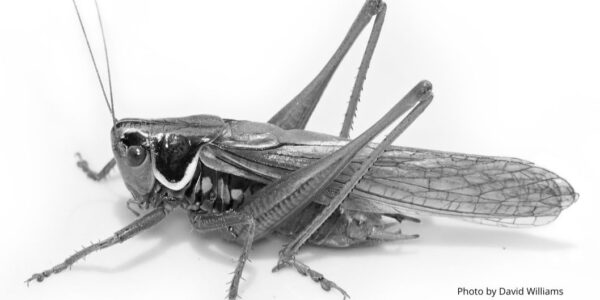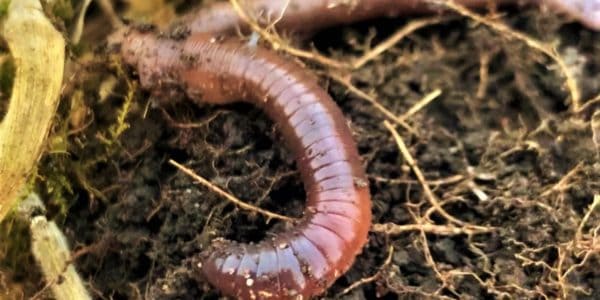
Discover more as you learn about UK invertebrates and improve your skills on our beginner to advanced courses.
We run regular invertebrate courses throughout the year delivered online and UK-wide by expert tutors and follow a framework to progress your learning at a level to suit you.Over 95% of all know species of animals on Earth are invertebrates (animals without backbones). They are incredibly complex creatures which can be found in terrestrial, marine and freshwater habitats.
Terrestrial (land-dwelling) invertebrates are animals that lack a backbone, and it is a grouping containing the majority of the world’s animal species. These terrestrial invertebrate species are split between 5 phyla: Annelida, Arthropoda, Mollusca, Nematoda and the Platyhelminthes.
The types of terrestrial invertebrates that you may encounter in the UK range from wonderful woodlice to soil-dwelling springtails. With thousands of terrestrial invertebrate species in the UK, there is always something new to learn about!
They range from tiny mites which are invisible to the human eye, to massive stag beetles. Due to their, generally, small size and lack of fur, not many people pay attention to invertebrates. However, they provide a range of useful ecosystem services that we cannot survive without, like pollination, decomposition, and they’re an important food source for other animals such as birds, mammals, and reptiles. Even the common wasp, which most people find annoying, is a very useful pollinator.
Unfortunately, many invertebrate species are in decline and few people know how to identify or record invertebrates. This means that there is a lack of data on invertebrates so conservationists are struggling to fully understand where, when, how or why they’re declining. It’s becoming increasingly important that conservationists and anyone working within the environmental sector develop invertebrate identification skills because they’re so vital to our survival. Developing these skills can be both easy and difficult. Invertebrates vary greatly in terms of their size and ease of identification. Take beetles, for example, there’s over 4000 species in the UK. You can identify many of the larger species groups, like longhorn beetles, in the field but there are also many tricky groups, such as weevils, which require microscopic identification and thus much more practice.
Species Identification
Some terrestrial invertebrates can be identified in the field using a key and a hand lens. However, many species will require a closer look under a microscope and may have to be dispatched and preserved – plus, some require dissection! Nevertheless, this allows specific features to be identified, an essential technique that will be needed to guide you through an identification key.
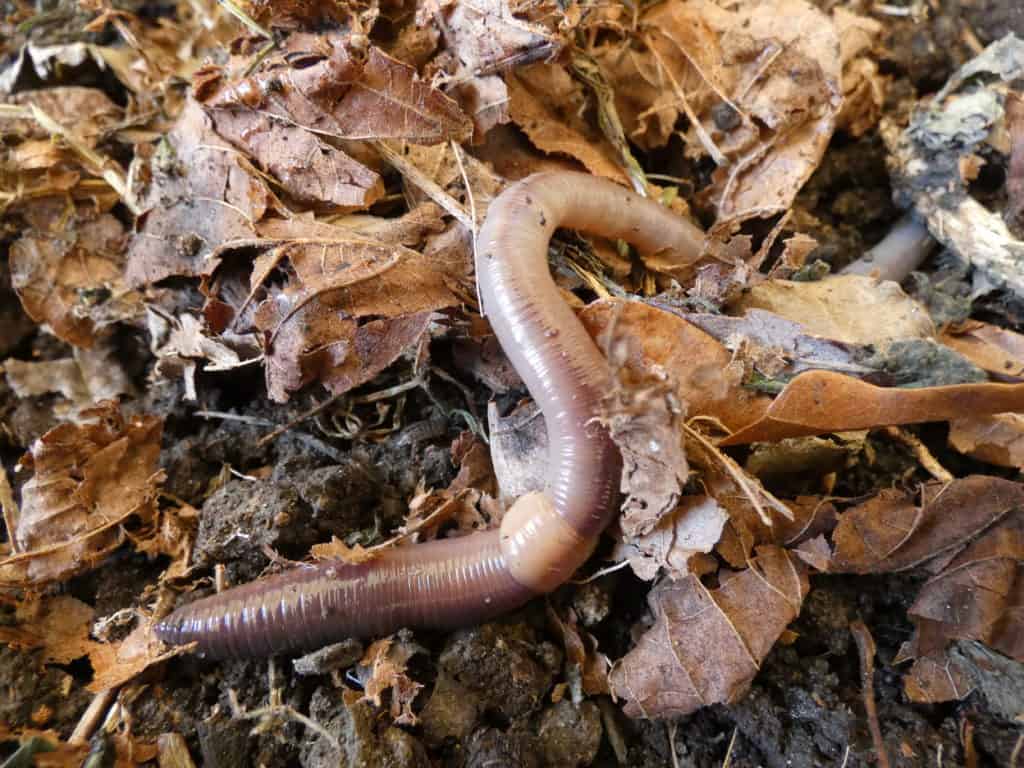
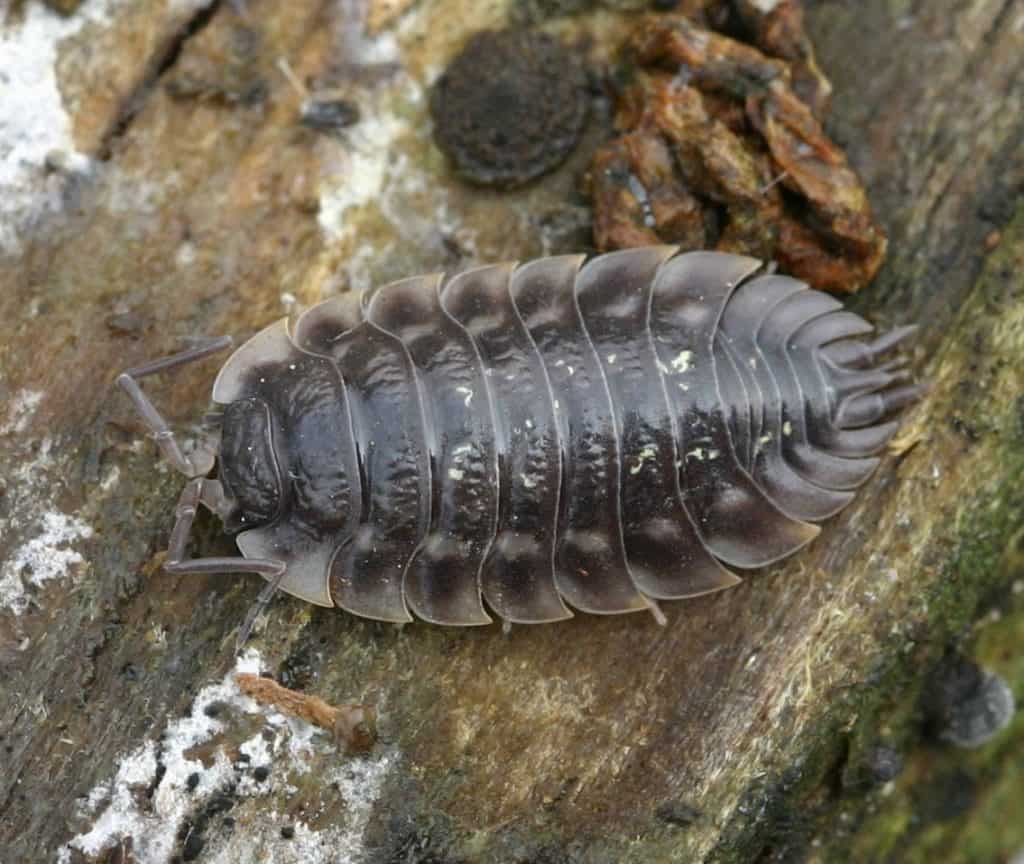
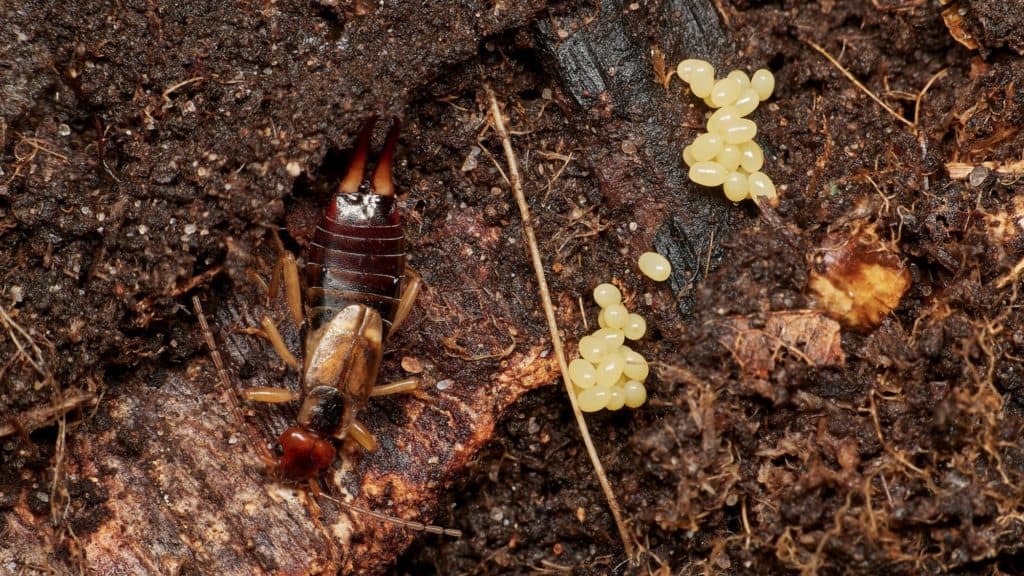
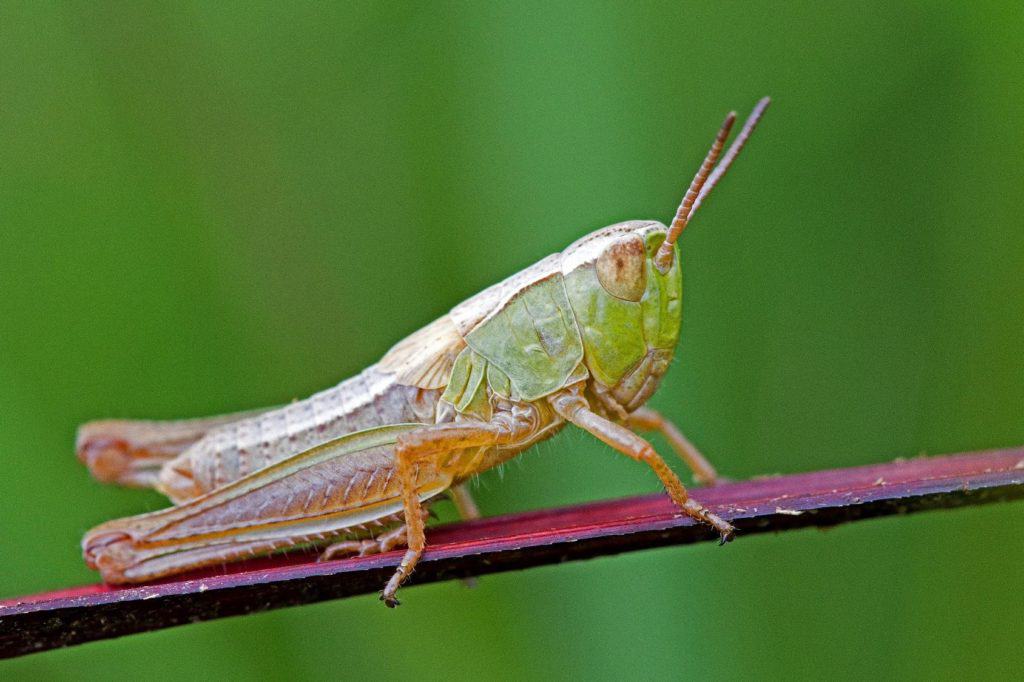
Identification Courses
Our invertebrate courses are delivered by experts in the field, and they will equip you with the skills and knowledge to discover more about the various species and their importance within our ecosystems. Our beginner courses are for anyone interested in discovering and exploring this invertebrate group. You can learn how to identify the key groups of invertebrates and acquire or improve identification skills.
Training is led by expert tutors who are passionate about the subject. Taking place at venues across the UK, our courses are designed to progress your learning at a level to suit your needs.
Each course is part of a learning framework. You can see the course level descriptions here. Natural history courses are available at all levels from beginner through to professional training.
Identification Resources
AIDGAP Guides – The aim of AIDGAP series is to produce accessible keys suitable for non-specialists from sixth-form age upwards. All AIDGAP guides are initially produced as test versions, which are circulated widely to students, teaching staff and environmental professionals, with the feedback incorporated into the final published versions. In many cases the AIDGAP volume is the only non-technical work covering the taxa in question.
AIDGAP Terrestrial Invertebrates
AIDGAP Key to the Earthworms of Britain and Ireland
AIDGAP Key to the Woodlice of Britain and Ireland
AIDGAP Key to the Collembola (Springtails) of Britain and Ireland
Grasshoppers guide features 50 species of grasshoppers, crickets, bush crickets, ground hoppers, cockroaches, earwigs and stick insects.

